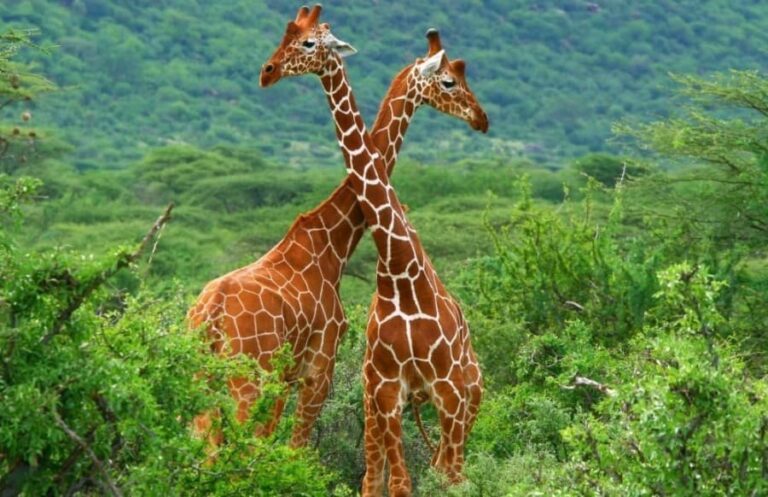
100 Very Hard Quiz Questions to Test Your Knowledge
Mastering Quiz Challenges with 100 Very Hard Quiz Questions
Quiz challenges are an exhilarating way to test one’s knowledge across a myriad of subjects.
Quiz questions can range from lighthearted trivia to some of the most challenging queries that will leave you scratching your head.
In this engaging article, we’ll delve deeply into the world of quiz questions, specifically focusing on the 100 very hard quiz questions.
Whether you’re preparing for a trivia night, aiming to improve your knowledge, or simply looking for a fun and challenging way to engage with friends, these questions offer an exciting opportunity.
Get ready to stretch your cognitive muscles and learn something new!
Understanding the Challenge of Quiz Questions
Quiz questions are not merely questions they are challenges that bring out our memory, learning, and critical thinking skills.
The tough ones often require not only knowledge but also keen analytical skills.
With numerous quiz formats, participants can expect questions in areas like history, science, literature, and geography.
To illustrate the depth of these challenges, the following list presents incredibly hard trivia questions that have stumped many.
Remember, while the goal of quizzes is fun, they also act as a fantastic educational tool!
Moreover, quizzes can foster a sense of competition and camaraderie among players.
Whether you are hosting a game night or participating in a community challenge, they serve as an icebreaker and stimulate engaging conversations.
This forms a vital aspect of social interaction and encourages learning through friendly competition.
Importance of Strong Knowledge Base for Quizzes
Your knowledge base significantly influences your performance in quizzes.
The hard questions presented below will require a solid foundation in various subject matters.
Additionally, this knowledge isn’t just academic; real-world experiences and popular culture play a critical role in developing this foundation.
Having a broad understanding of multiple disciplines enhances confidence when faced with difficult questions.
Let’s explore this through the following examples:
- History: Awareness of key historical events helps in answering questions about timelines, major figures, and significant occurrences.
- Science: Understanding basic scientific principles is essential for tackling questions related to chemistry and biology.
- Geography: Familiarity with world maps and cultures enables quiz participants to answer questions about capitals, landmarks, and countries effectively.
With knowledge from multiple areas, participants can intuitively brag about their understanding, adding an element of enjoyment to the quiz.
This engagement solidifies the brain’s connections and enhances overall cognitive abilities.
Tips for Tackling Hard Quiz Questions
Facing tough quiz questions can be daunting.
However, with the right strategies, you can turn daunting challenges into manageable tasks.
Here are some valuable tips to keep in mind while preparing for or participating in a quiz:
- Stay Calm: Anxiety can distort your thought process, so find ways to stay relaxed while you answer.
- Read Carefully: Ensure you fully comprehend the question; context can hold vital clues!
- Practice with Mock Quizzes: Familiarize yourself with difficult questions by engaging in practice quizzes regularly.
- Work in Teams: Partnering with others allows for collaborative problem-solving.
Additionally, don’t hesitate to learn from mistakes.
Each quiz ventured is an opportunity for growth, understanding that it’s not about winning but about improving knowledge.
Arming yourself with these tips will surely improve your performance in the upcoming quiz challenges.
Exploring the 100 Very Hard Quiz Questions
Now that you have an understanding of quiz strategies, it’s time to dive into the meat of this article.
Below is a compilation of 100 very hard quiz questions covering a variety of subjects with the aim of challenging your intellect.
This is not only fun but also serves as an excellent study tool!
- What is the capital of Mongolia? (Answer: Ulaanbaatar)
- Who was the first woman to win a Nobel Prize, and in which year? (Answer: Marie Curie, 1903)
- In which year did the Berlin Wall fall? (Answer: 1989)
- What is the chemical symbol for the element with atomic number 79? (Answer: Au, Gold)
- Who wrote the play “Waiting for Godot”? (Answer: Samuel Beckett)
- What is the longest river in South America? (Answer: The Amazon River)
- Which planet in our solar system has the most moons? (Answer: Saturn)
- In Greek mythology, who is the god of the sea? (Answer: Poseidon)
- What are the first ten digits of pi? (Answer: 3.1415926535)
- Who painted the ceiling of the Sistine Chapel? (Answer: Michelangelo)
- What is the hardest natural substance on Earth? (Answer: Diamond)
- Which scientist developed the theory of general relativity? (Answer: Albert Einstein)
- What is the capital city of Bhutan? (Answer: Thimphu)
- In what year did the United States gain independence? (Answer: 1776)
- What organelle is known as the powerhouse of the cell? (Answer: Mitochondria)
- In which year did the Titanic sink? (Answer: 1912)
- Who was the first president of the United States? (Answer: George Washington)
- What is the most spoken language in the world? (Answer: Mandarin Chinese)
- Which country invented paper? (Answer: China)
- Who is known as the ‘Father of Modern Physics’? (Answer: Albert Einstein)
- What is the largest desert in the world? (Answer: The Antarctic Desert)
- Which planet is known as the Red Planet? (Answer: Mars)
- What is the smallest bone in the human body? (Answer: The stapes bone in the ear)
- What is the capital of Iceland? (Answer: Reykjavik)
- Who discovered penicillin? (Answer: Alexander Fleming)
- What is the main ingredient in guacamole? (Answer: Avocado)
- In which year did World War II end? (Answer: 1945)
- What gas do plants absorb from the atmosphere? (Answer: Carbon dioxide)
- What is the largest organ in the human body? (Answer: The skin)
- Who wrote “Pride and Prejudice”? (Answer: Jane Austen)
- Which element has the chemical symbol ‘Fe’? (Answer: Iron)
- Who painted “The Starry Night”? (Answer: Vincent van Gogh)
- What is the capital city of Japan? (Answer: Tokyo)
- Who is the author of the “Harry Potter” series? (Answer: J.K. Rowling)
- In which city is the famous landmark Machu Picchu located? (Answer: Cusco, Peru)
- What is the currency used in Japan? (Answer: Yen)
- Who formulated the laws of motion? (Answer: Sir Isaac Newton)
- What is the smallest country in the world? (Answer: Vatican City)
- What is the main language spoken in Brazil? (Answer: Portuguese)
- Who is the deity of the sun in Ancient Egyptian mythology? (Answer: Ra)
- In which year was the first manned moon landing? (Answer: 1969)
- What is the capital of Kenya? (Answer: Nairobi)
- Who invented the telephone? (Answer: Alexander Graham Bell)
- What is the longest-running Broadway show? (Answer: The Phantom of the Opera)
- What is the only mammal capable of true flight? (Answer: The bat)
- In geometry, what is a shape with eight sides called? (Answer: An octagon)
- Who was the last Tsar of Russia? (Answer: Nicholas II)
- What is the hardest known natural material in the universe? (Answer: Aggregated diamond nanorods)
- What is the capital of New Zealand? (Answer: Wellington)
- Who wrote the epic poem “The Odyssey”? (Answer: Homer)
- What is the most widely used illicit drug in the world? (Answer: Cannabis)
- What is the rarest blood type in humans? (Answer: AB negative)
- Who developed the first successful polio vaccine? (Answer: Jonas Salk)
- What is the tallest mountain in North America? (Answer: Denali, Mount McKinley)
- Which country is home to the kangaroo? (Answer: Australia)
- What is the basic unit of life? (Answer: The cell)
- Who was the first Prime Minister of the United Kingdom? (Answer: Sir Robert Walpole)
- Where is the Great Barrier Reef located? (Answer: Off the coast of Queensland, Australia)
- What vitamin is produced when the skin is exposed to sunlight? (Answer: Vitamin D)
- Who wrote the famous play “Hamlet”? (Answer: William Shakespeare)
- What is the capital city of Canada? (Answer: Ottawa)
- Which element has the highest atomic number? (Answer: Oganesson, atomic number 118)
- What is the largest planet in our solar system? (Answer: Jupiter)
- Who was the first person to circumnavigate the globe? (Answer: Ferdinand Magellan)
- What is the Pythagorean theorem? (Answer: a² + b² = c²)
- What country is known as the Land of the Rising Sun? (Answer: Japan)
- Who composed the Four Seasons? (Answer: Antonio Vivaldi)
- What is the capital of Egypt? (Answer: Cairo)
- Which ancient civilization built the pyramids? (Answer: The Egyptians)
- Who painted the “Mona Lisa”? (Answer: Leonardo da Vinci)
- What is the currency used in the European Union? (Answer: Euro)
- What disease is caused by the deficiency of vitamin C? (Answer: Scurvy)
- What is the most visited museum in the world? (Answer: The Louvre)
- Who is known as the “Father of Geometry”? (Answer: Euclid)
- What is the longest river in the world? (Answer: The Nile River)
- Where is the Eiffel Tower located? (Answer: Paris, France)
- Who discovered the structure of DNA? (Answer: James Watson and Francis Crick)
- What is the primary ingredient in hummus? (Answer: Chickpeas)
- Who was the first female prime minister of the United Kingdom? (Answer: Margaret Thatcher)
- What is the capital of Italy? (Answer: Rome)
- What famous scientist is known for his theory of evolution? (Answer: Charles Darwin)
- What is the main ingredient in traditional sushi? (Answer: Rice)
- What is the capital city of Brazil? (Answer: Brasília)
- Who wrote “The Great Gatsby”? (Answer: F. Scott Fitzgerald)
- What is the largest ocean on Earth? (Answer: The Pacific Ocean)
- In what year did the first World Cup take place? (Answer: 1930)
- What is the scientific term for the fear of spiders? (Answer: Arachnophobia)
- Who invented the lightbulb? (Answer: Thomas Edison)
- What is the capital of Argentina? (Answer: Buenos Aires)
- Who created the character of Sherlock Holmes? (Answer: Arthur Conan Doyle)
- What is the official language of Egypt? (Answer: Arabic)
- Who wrote the novel “1984”? (Answer: George Orwell)
- What is the fastest land animal? (Answer: The cheetah)
- Who painted “The Last Supper”? (Answer: Leonardo da Vinci)
- What does DNA stand for? (Answer: Deoxyribonucleic acid)
- Who was the first astronaut to walk on the moon? (Answer: Neil Armstrong)
- What is the capital city of Russia? (Answer: Moscow)
- Who founded Microsoft? (Answer: Bill Gates and Paul Allen)
- What is the scientific study of fungi called? (Answer: Mycology)
- What is the name of the world’s largest rainforest? (Answer: The Amazon Rainforest)
Enhancing Your Quiz-Answering Skills
Becoming proficient in answering quiz questions is a skill that can be honed over time.
This involves both actively seeking knowledge and utilizing effective study techniques.
Understandably, you don’t need to memorize every fact but cultivating a habit of learning helps answer complex questions more easily.
Leveraging resources such as trivia nights, apps, and online courses can also enrich your knowledge base significantly.
Conclusion: Embrace the Challenge!
In conclusion, quizzes provide an exciting avenue for learning and engagement.
The journey through challenging questions not only stretches our intellect but also fosters camaraderie among participants.
Utilize the 100 very hard quiz questions shared here and challenge yourself or friends to expand your knowledge horizon.
Whether you’re aiming to ace that trivia night or simply want to engage in thoughtful conversation, these quiz questions are an excellent asset.
So, the next time you find yourself at a quiz, you can rise to the occasion!
FAQ
What makes a quiz question hard?
A hard quiz question generally requires extensive knowledge or insight on a specific topic.
These questions often require critical thinking skills rather than mere recollection of facts.
How can I prepare for taking hard quiz questions?
Preparation involves broadening your knowledge base and practicing through various quiz formats.
Engaging in trivia nights or using quiz apps can also help improve your skills.
Why are quizzes beneficial for learning?
Quizzes encourage active recall, which strengthens memory retention.
They also provide a fun and competitive way to learn new information.
What subjects do the hardest quiz questions cover?
Hard quiz questions can cover a wide array of subjects including history, science, literature, and geography.
This variety ensures a challenge for everyone, regardless of preferred learning areas.
Where can I find more quiz questions?
Many websites, apps, and trivia books supply extensive quiz question resources for various subjects.
Online communities often curate lists of challenging questions too.
Feel free to share your thoughts, experiences, or any questions related to quizzes in the comments section below!


